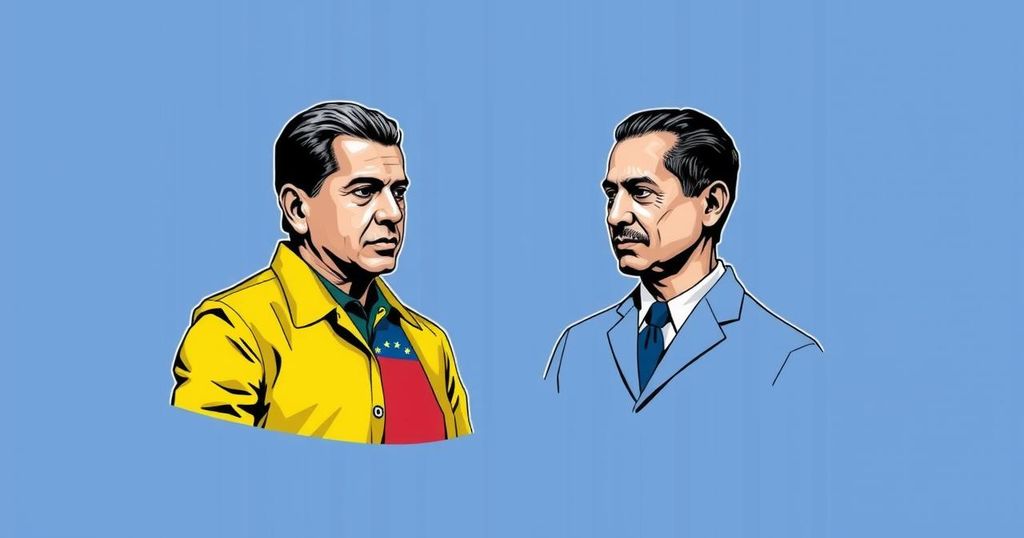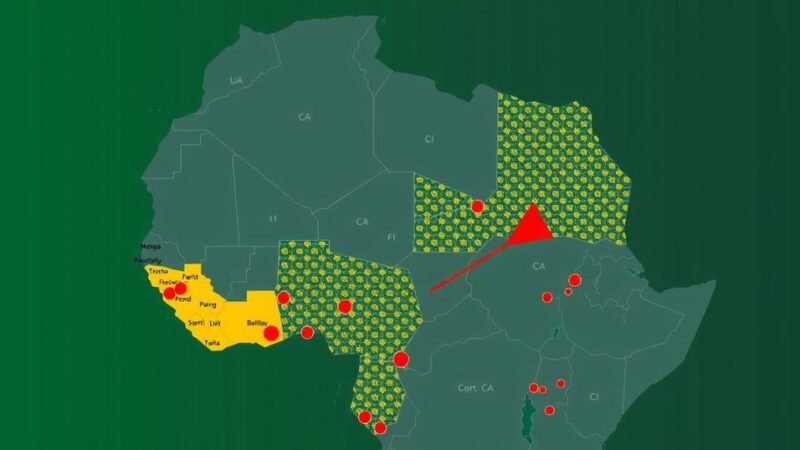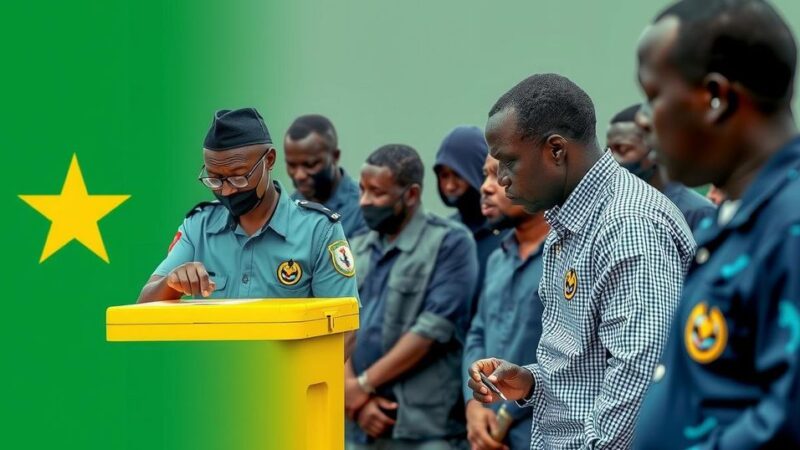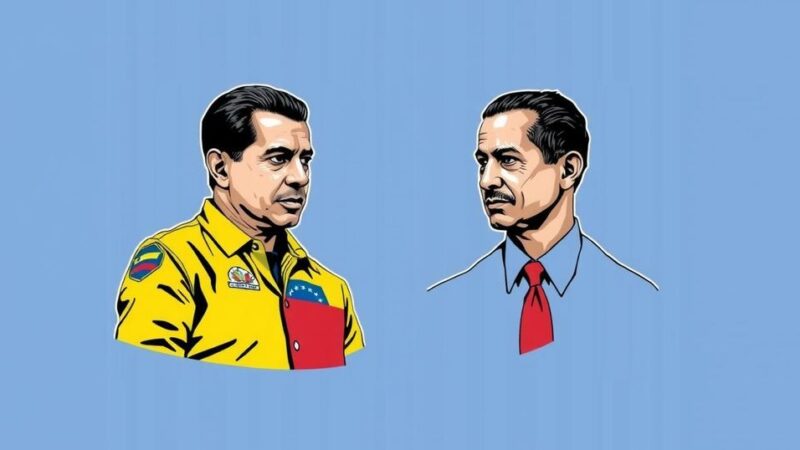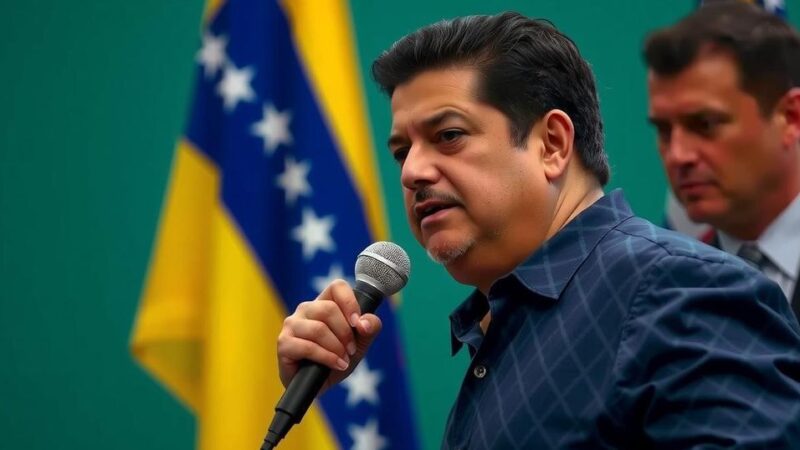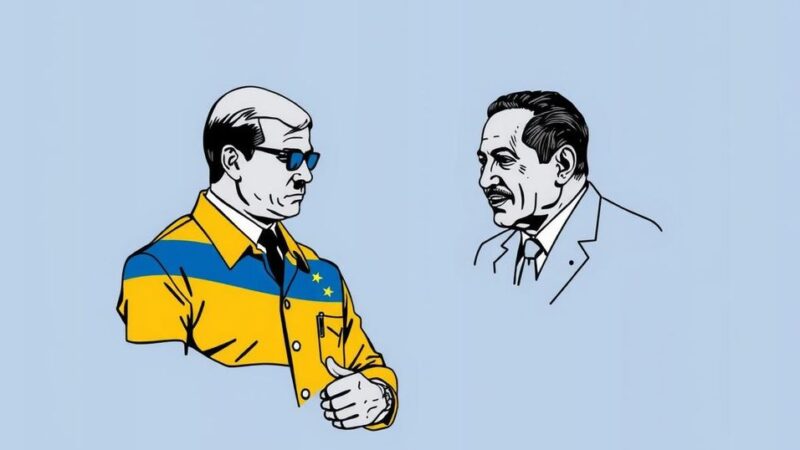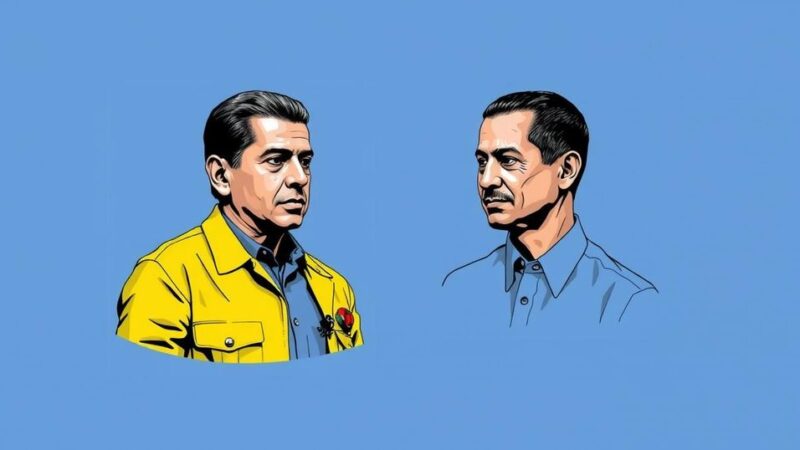The United States imposed sanctions on 21 Venezuelan officials linked to suppression of protests after the contested July election, citing actions that undermined democratic practices. At least 25 protesters were killed, and more than 2,400 were arrested during the ensuing crackdown. The U.S. also recognized opposition leader Edmundo Gonzalez as the legitimate president, signaling a shift in foreign policy amidst ongoing allegations of electoral fraud.
The United States has implemented sanctions against 21 Venezuelan officials linked to the oppressive actions following the disputed July presidential election. These measures were announced by the U.S. Department of the Treasury, which highlighted the severe crackdown that resulted in at least 25 fatalities among protestors and the arrest of over 2,400 individuals. Such actions were viewed as efforts to suppress dissent and silence opposition voices, which were vocal in their claims of a fraudulent election process conducted under President Nicolás Maduro.
The sanctions target high-ranking officials, including members of the security forces, accused of undermining a fair electoral process and perpetrating acts of repression. Following the election, where Maduro proclaimed victory despite significant polling disadvantages, international observers and the opposition expressed grave concerns about the legitimacy of the results. These sanctions are part of the broader efforts by the U.S. to diplomatically isolate Maduro’s government, which is already facing skepticism from regional leaders like Brazil’s Lula da Silva and Colombia’s Gustavo Petro.
As the Maduro administration continues to grapple with allegations of electoral fraud, the U.S. also extended recognition to Edmundo Gonzalez as the legitimate leader of Venezuela, raising questions about the future implications for the country’s political landscape. These new sanctions join a growing list affecting 180 current and former Venezuelan officials, demonstrating the United States’ ongoing commitment to addressing what it deems to be systemic injustices in Venezuela’s electoral process.
In recent months, Venezuela has experienced heightened tensions following a presidential election that resulted in Nicolás Maduro claiming victory amidst widespread allegations of electoral fraud. The opposition, led by figures such as Edmundo Gonzalez, has contested the legitimacy of the election, asserting that the process was not conducted in accordance with international standards of fairness or transparency. In response to the violent suppression of protests and civil dissent, the U.S. has taken steps to impose sanctions on those deemed responsible for undermining democracy in Venezuela. This political conflict in Venezuela has garnered international attention, prompting statements from various governmental and non-governmental organizations that criticize the country’s governance and electoral credibility. The sanctions are intended to hold accountable those who used violence and repression against citizens exercising their rights to protest and voice dissent.
In summary, the United States has instated sanctions against Venezuelan officials in response to the government’s aggressive post-election actions that stifled democratic dissent and led to significant violence. Recognizing Edmundo Gonzalez as the legitimate leader, the Biden administration signals a shift in U.S. foreign policy toward Venezuela, aiming to pressure the Maduro regime regarding its electoral integrity and treatment of opposition forces. These developments highlight the complexities of Venezuelan politics and the increasing international scrutiny directed at the Maduro government.
Original Source: www.aljazeera.com
